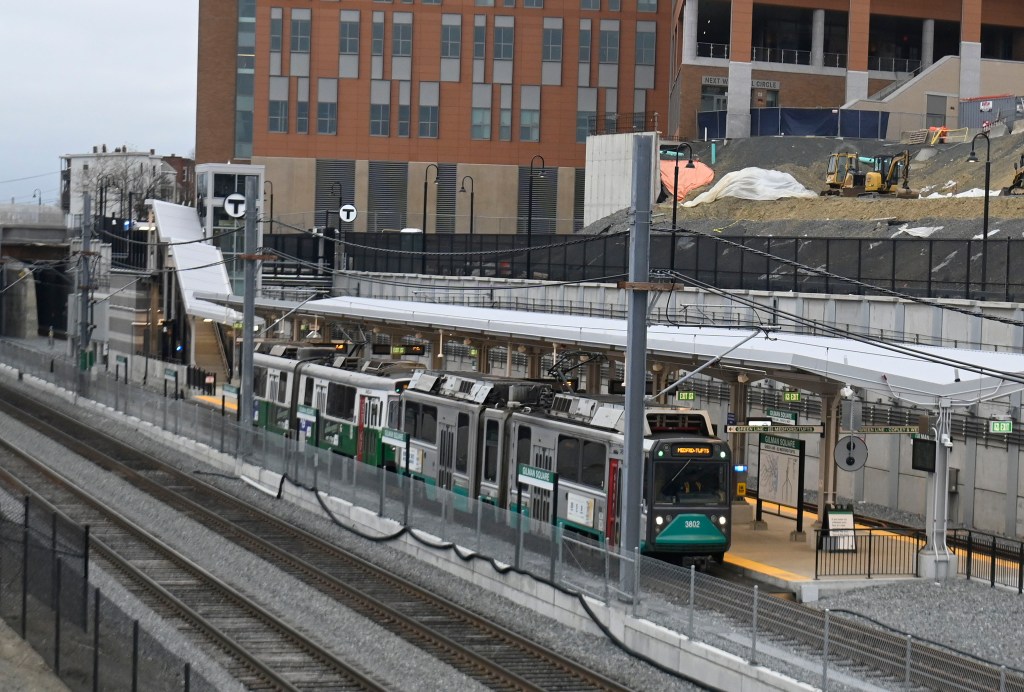
The Somerville City Council will consider a zoning ordinance to remove “unnecessary parking spaces” built with new developments, a request that proponents say is aimed at improving quality of life and “meeting climate goals.”
Council President Ben Ewen-Campen and Councilor Willie Burnley, Jr., are set to bring forth a resolution highlighting the framework of their proposal to the rest of the council on Thursday. They say they already have support from city administrators and advocates.
“This is about reducing traffic congestion, lowering costs, and meeting climate goals,” Ewen-Campen said Monday in a post on X.
In 2019, the council approved a zoning law that set a maximum number of new parking spaces built in its transit-accessible neighborhoods. The new proposal looks to apply that regulation to “certain large commercial developments” in other parts of the city while doing away with so-called “parking minimums.”
“The elimination of parking minimums in Somerville’s transit-oriented development areas has resulted in a remarkable 62% decrease in the number of parking spaces being built compared to what was previously mandated,” part of the resolution states.
Requiring “large commercial developments” to provide at least a minimum number of parking spaces, Ewen-Campen and Burnley, Jr. say, leads to “increased traffic congestion,” hampers residents’ quality of life, and impedes the city’s climate goals.
In a statement to the Herald on Tuesday, the city said Mayor Katjana Ballantyne believes the proposal “merits serious consideration” as it aligns with Somerville’s transition to cleaner modes of transportation and promotes affordable housing.
The request has caught some pushback in the community after Ewen-Campen posted a document of the resolution on social media Monday.
“Removing spaces causes more congestion with people looking for parking,” someone commented on X. “It also hurts business because many people can not navigate public (transit), and will go elsewhere if they can not park. It will bring more Uber traffic too.”
The city told the Herald that “the administration recognizes many residents currently rely on access to parking.”
“With this in mind, the City is committed to dedicating resources to employing curb use and other strategies that make the best use of limited parking resources,” a spokesperson said, “rather than mandating the creation of new parking.”
Rough 30% of parking spaces in new apartment buildings across Greater Boston are unused, according to undisclosed studies that Ewen-Campen and Burnley, Jr., cited in the resolution.
Cambridge in October 2022 became the first city or town in Massachusetts to eliminate all minimum parking space requirements from a zoning code. In Boston, Mayor Michelle Wu signed an amendment earlier that year eliminating parking minimums for affordable housing developments.”
The resolution order in Somerville highlights how “the creation of even a single parking space costs, on average, $50,000 with significantly higher costs in dense metropolitan areas.”
“It is often said that zoning is the most powerful tool that municipalities have in the fight for housing affordability,” Burnley Jr. said in a post on Instagram. “By eliminating parking minimums like Cambridge did years ago, we hope to spur further affordable housing development.”

